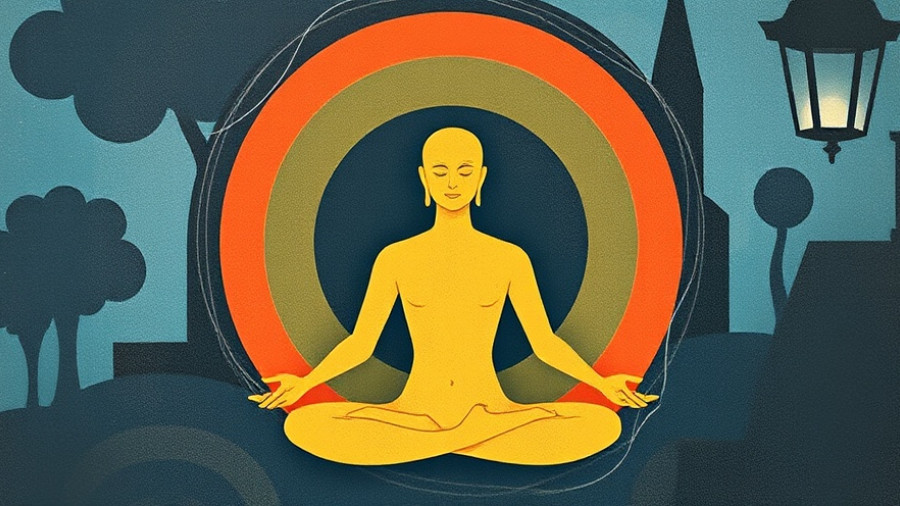
Rediscovering Connection Through Mindfulness
In today's hectic world, many of us disconnect from our bodies, engrossed in worries about appearances, health, and the burdens of daily life. This disconnect can manifest as stress, anxiety, and a long list of negative emotions. Mindfulness, a practice rich with benefits, offers a pathway back to this vital connection. By embedding ourselves in the present moment, we not only develop a compassionate relationship with ourselves, but we also engage with others in profound ways, cultivating a community of shared experiences.
Embracing 'Today's Body'
Concepts like 'today's body' highlight the importance of self-acceptance in the realm of mindfulness. As articulated by meditation instructors, viewing our physical selves through the lens of the present moment allows for a healthier internal dialogue. Instead of the relentless self-criticism centered on ideals of beauty or performance, we learn to appreciate our bodies as they are today. This shift allows for a broader understanding of ourselves, encouraging a sense of belonging rather than isolation.
Letting Go of Self-Criticism
One of the keys to mindfulness is the ability to release the inner critic. Practicing with gentleness, wherein we recognize the tug-of-war between acceptance and the desire for change, enables us to cultivate a more forgiving view of ourselves. By stepping back from the roles we impose upon our bodies—be it through societal standards or personal expectations—we can foster a nurturing space where growth becomes possible. This isn't about denying the pursuit of health or improvement; it’s about cultivating understanding and patience along the journey.
The Role of Breath in Mindfulness
Mindful breathing is foundational in reconnecting with our bodies. It serves as a bridge to awareness, grounding us in the present and allowing us to notice the subtle signals our bodies send. For those who experience anxiety or worry, breath-focused practices can be especially grounding, offering immediate relief. The art of breathing mindfully not only calms the nervous system but also opens a dialogue with our feelings and sensations, contributing to overall mental wellness.
Compassionate Self-Awareness
Awareness is more than just noticing; it’s about observing with kindness. Cultivating awareness helps enhance emotional intelligence, creating space to comprehend our feelings without judgment. In doing so, we become equipped to navigate complex emotions and experiences, from stress and anxiety to moments of joy.
The Importance of Community and Support
Building a mindful practice can be made richer with community engagement, whether through support groups, classes, or online spaces. Sharing our experiences not only fosters resilience but also reduces stigma around mental health challenges. When we acknowledge that many others share in our struggles, connections deepen, helping us feel less isolated in our journeys.
Incorporating Mindfulness Into Daily Life
For those looking to embrace mindfulness, integrating simple practices into daily life is vital. Techniques such as mindful walking, where one pays attention to each step, or engaging in mindful eating that involves savoring each bite, can transform mundane routines into opportunities for connection and awareness. These small adjustments can lead to significant shifts in perspective, allowing you to tap into the present fully and mindfully.
Actionable Steps for Beginners
- Start Small: Dedicate a few minutes a day to simply breathe and observe.
- Practice Gratitude: Reflect on what your body allows you to do each day.
- Join a Mindfulness Class: Engage with a community; the shared experience can create bonds of support.
Mindfulness offers a path to reconnection with both self and community. With every mindful breath and moment of awareness, we redefine our relationship to ourselves and to the world around us. Begin this journey today, and recognize the profound beauty in embracing “today’s body.”
Additionally, if you're looking for guidance or support in your mindfulness journey, consider reaching out to mental health professionals who can provide valuable resources. Counseling and therapy services are available to help you on your path to mental well-being.
 Add Row
Add Row  Add
Add 




Write A Comment